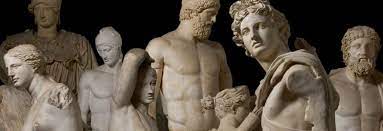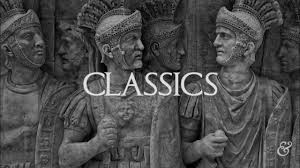
Classic Literature

What Is Classic Literature?
The major literary works of Greek, Roman, and other prehistoric civilizations are referred to as classical literature. Classical literature includes the writings of Homer, Ovid, and Sophocles. The phrase isn't simply applicable to books. It can also incorporate other types of writing, such as epic, lyric, tragedy, comedy, and pastoral. It was long believed that reading these literature was essential for
humanities students. The best writers were thought to have been Greek and Roman. It was formerly thought that elite education was marked by the study of their work. These novels are no longer often studied, despite the fact that they frequently still appear in high school and college English courses. The growth of literature has increased the options available to readers and scholars.
What Makes a Book a Classic?
Every literary genre and category has its own classics, yet most people think of classics when they think of literary fiction. For instance, while the ordinary reader may not think of Steven King's "The Shining," the tale of a haunted hotel, as a classic, horror fans might. Books that are regarded as classics are those that are well-written and/or have cultural significance, even within genres or literary
trends. A classic is a book that, although having subpar writing, pioneered a genre's first ground-breaking idea. The first romance book set in a historical era, for instance, had a profound cultural impact on the romance genre.
Qualities of Classic Literature
To be generally agreed upon as a classic, works meet some common high standards for quality, appeal, longevity, and influence.
Expresses Artistic Quality
Classic Literature is an expression of life, truth, and beauty. It must be of high artistic quality, at least for the time in which it was written. Although different styles will come and go, a classic can be appreciated for its construction and literary art. It may not be a bestseller today due to pacing and dated language, but you can learn from it and be inspired by its prose.
Stands the Test of Time
In classic literature, a work is usually considered to be a representation of the period in which it was written—and it merits lasting recognition. In other words, if the book was published in the recent past, it is not a classic; while the term "modern classic" may apply to books written after World War II, they need longevity to achieve the designation of a simple "classic." A book of recent vintage that is of high quality, acclaim, and influence needs a few generations to determine whether it deserves to be called a classic.
Has Universal Appeal
Great works of literature touch readers to their very core, partly because they integrate themes that are understood by readers from a wide range of backgrounds and levels of experience. Themes of love, hate, death, life, and faith, for example, touch upon some of our most basic emotional responses. You can read classics from Jane Austen and Miguel de Cervantes Saavedra and relate to the characters and situations despite the difference in era. In fact, a classic can alter your view of history to see how little has changed in our basic human makeup.
Makes Connections
You can study a classic and discover influences from other writers and other great works of literature. Of course, this is partly related to the universal appeal of a classic. Still, classics are always informed by the history of ideas and literature, whether unconsciously or specifically worked into the text. Likewise, classics will inspire other writers who come afterward, and you can trace how they influenced works in their own time and down through the following decades and even centuries.
Is Relevant to Multiple Generations
By covering themes universal to the human condition and doing so in a way that stands the test of time, classics remain relevant to all. Because of the high quality of the characters, story, and writing, people can read classics in their youth and gather a basic understanding of the author's themes, and then they can read them later in life and see additional layers of truth that they missed previously. The quality enables the work to communicate to multiple age groups throughout time.
Using Classic Literature
These qualities of classic literature make them appropriate for study. While younger students may find them less accessible, older students and adults can be enlightened by reading them as part of a formal study, book club, or ongoing reading. To introduce younger readers to the classics, try using graphic novel versions, editions simplified for younger readers, or movie adaptations.
For older literature students, classics have a wide variety of expert information available about them, giving background information like how and why they were written, analyses of the text, and comments on lasting cultural impact. Classics likely also have study guides that can assist learners in their basic understanding of the text, such as by explaining dated terms and references and providing study questions.

Classic Literature

What Is Classic Literature?
The major literary works of Greek, Roman, and other prehistoric civilizations are referred to as classical literature. Classical literature includes the writings of Homer, Ovid, and Sophocles. The phrase isn't simply applicable to books. It can also incorporate other types of writing, such as epic, lyric, tragedy, comedy, and pastoral. It was long believed that reading these literature was essential for
humanities students. The best writers were thought to have been Greek and Roman. It was formerly thought that elite education was marked by the study of their work. These novels are no longer often studied, despite the fact that they frequently still appear in high school and college English courses. The growth of literature has increased the options available to readers and scholars.
What Makes a Book a Classic?
Every literary genre and category has its own classics, yet most people think of classics when they think of literary fiction. For instance, while the ordinary reader may not think of Steven King's "The Shining," the tale of a haunted hotel, as a classic, horror fans might. Books that are regarded as classics are those that are well-written and/or have cultural significance, even within genres or literary
trends. A classic is a book that, although having subpar writing, pioneered a genre's first ground-breaking idea. The first romance book set in a historical era, for instance, had a profound cultural impact on the romance genre.
Qualities of Classic Literature
To be generally agreed upon as a classic, works meet some common high standards for quality, appeal, longevity, and influence.
Expresses Artistic Quality
Classic Literature is an expression of life, truth, and beauty. It must be of high artistic quality, at least for the time in which it was written. Although different styles will come and go, a classic can be appreciated for its construction and literary art. It may not be a bestseller today due to pacing and dated language, but you can learn from it and be inspired by its prose.
Stands the Test of Time
In classic literature, a work is usually considered to be a representation of the period in which it was written—and it merits lasting recognition. In other words, if the book was published in the recent past, it is not a classic; while the term "modern classic" may apply to books written after World War II, they need longevity to achieve the designation of a simple "classic." A book of recent vintage that is of high quality, acclaim, and influence needs a few generations to determine whether it deserves to be called a classic.
Has Universal Appeal
Great works of literature touch readers to their very core, partly because they integrate themes that are understood by readers from a wide range of backgrounds and levels of experience. Themes of love, hate, death, life, and faith, for example, touch upon some of our most basic emotional responses. You can read classics from Jane Austen and Miguel de Cervantes Saavedra and relate to the characters and situations despite the difference in era. In fact, a classic can alter your view of history to see how little has changed in our basic human makeup.
Makes Connections
You can study a classic and discover influences from other writers and other great works of literature. Of course, this is partly related to the universal appeal of a classic. Still, classics are always informed by the history of ideas and literature, whether unconsciously or specifically worked into the text. Likewise, classics will inspire other writers who come afterward, and you can trace how they influenced works in their own time and down through the following decades and even centuries.
Is Relevant to Multiple Generations
By covering themes universal to the human condition and doing so in a way that stands the test of time, classics remain relevant to all. Because of the high quality of the characters, story, and writing, people can read classics in their youth and gather a basic understanding of the author's themes, and then they can read them later in life and see additional layers of truth that they missed previously. The quality enables the work to communicate to multiple age groups throughout time.
Using Classic Literature
These qualities of classic literature make them appropriate for study. While younger students may find them less accessible, older students and adults can be enlightened by reading them as part of a formal study, book club, or ongoing reading. To introduce younger readers to the classics, try using graphic novel versions, editions simplified for younger readers, or movie adaptations.
For older literature students, classics have a wide variety of expert information available about them, giving background information like how and why they were written, analyses of the text, and comments on lasting cultural impact. Classics likely also have study guides that can assist learners in their basic understanding of the text, such as by explaining dated terms and references and providing study questions.

 Knowt
Knowt
